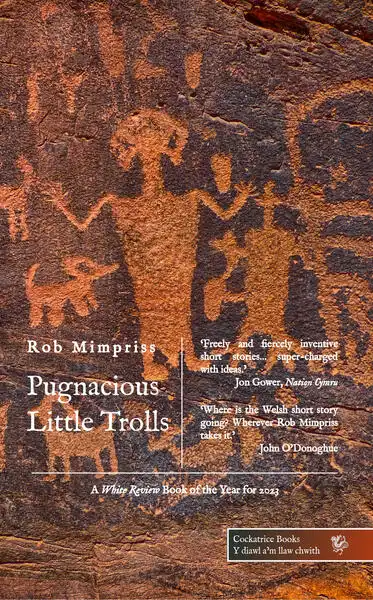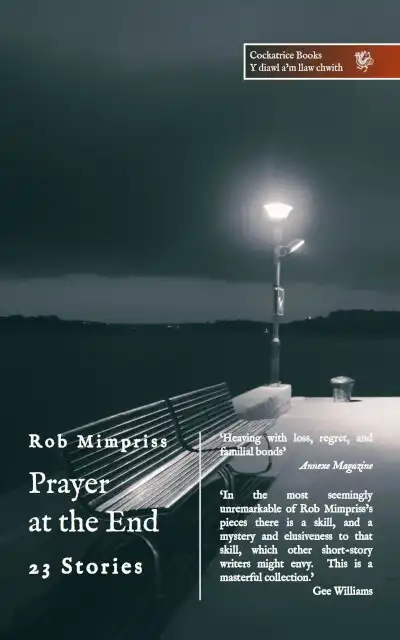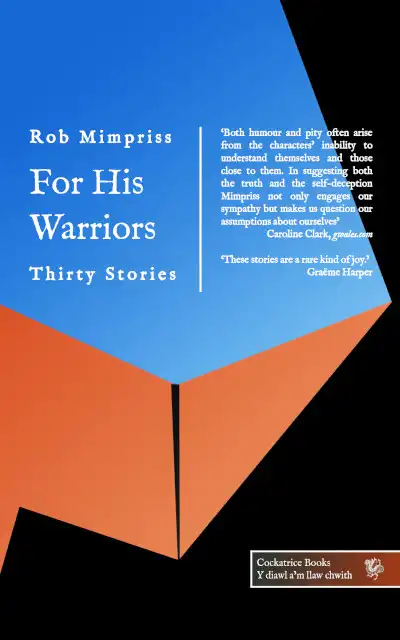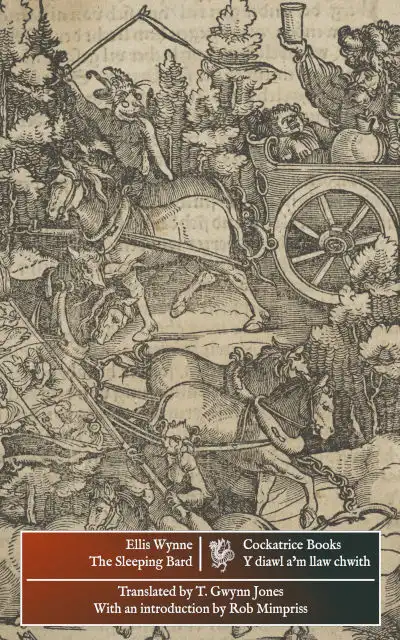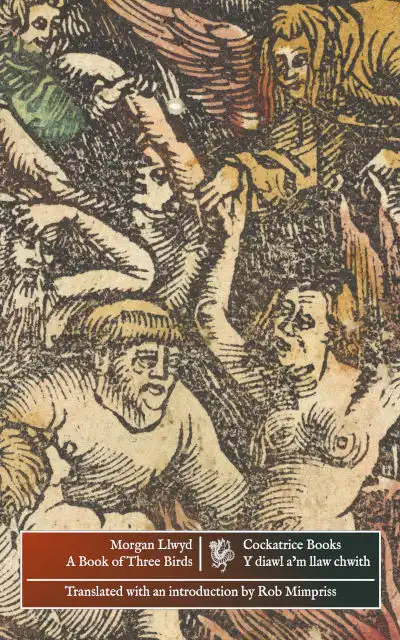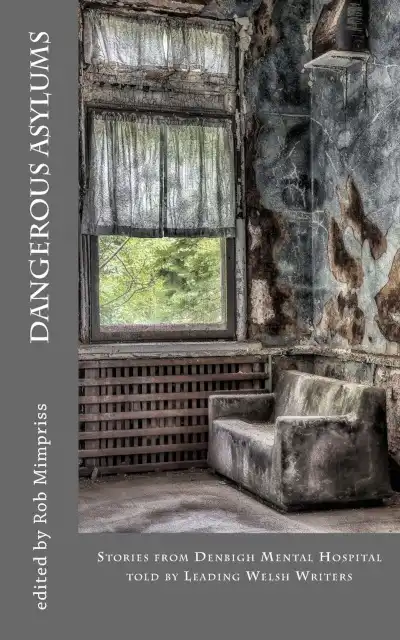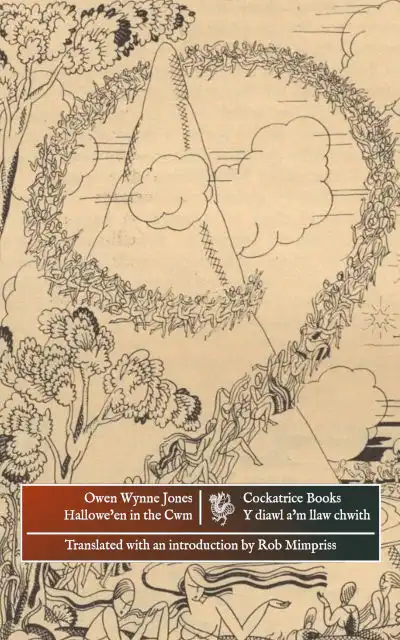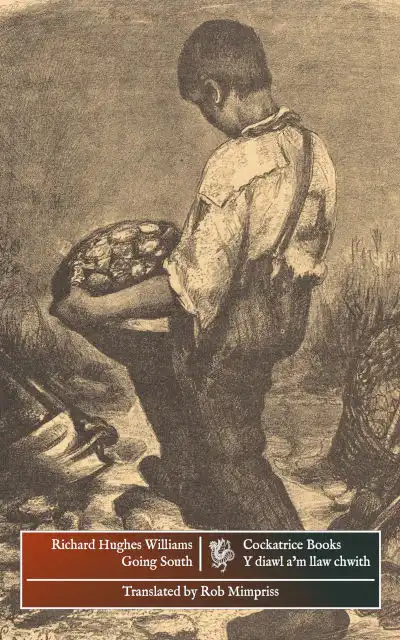It is probably just as well that Douglas Wilson addresses his book, Mere Christendom, exclusively to evangelical Christians, since his supporters would be as offended by a rational analysis of his ideas as outsiders would be appalled by their barbarity. America, he says, is threatened with social and political collapse as a result of the decline of Christianity. A state restructured on Christian principles is essential to prevent catastrophe. Such ideas have some currency among conservatives, who see religion, culture and nation as intertwined, and individual rights as culturally determined rather than universal, but Wilson has no interest in the established order or the status quo. The secular state, he tells us, by virtue of being a secular state, has rejected God. In rejecting God, it has taken God’s place, meaning that it can impose no limits on its appetite for tyranny. Neither has it any basis for promulgating human rights, since human rights can only arise from a recognition of the immortality of the soul. It is therefore essential that American democracy be abolished, and that Christians and Christians alone design the system of government that should take its place. The alternative, says Wilson, is the drift towards authoritarianism which he finds at work in social security programmes, in environmental protections, and in the health protection measures imposed during the Covid pandemic, against which he mobilised his followers.
That Wilson fails to distinguish between political and metaphysical systems of thought, that he is oblivious to the difference between a value judgement and a truth claim, that he conflates and misinterprets every idea, value or belief he regards as godless, is apparent even in the early pages of this book. His belief in the Christian doctrine of immortality as the only foundation of human dignity is deeply flawed, for while the Bible sometimes asserts the value of human life it also celebrates genocide; its laws equate persons with livestock and even with inanimate things; and when it celebrates human dignity it is more often in the context of life’s brevity and death’s finality than of Socratic arguments for the immortality of the soul. For a humanist, the value of the person is axiomatic, an expression merely of self-compassion which attributes selfhood to others; while a liberal Christian might ask, with Paul Tillich, whether humans are morally bound to obey God, and whether God desires such obedience anyway. Mary Midgeley and Iris Murdoch both show us that scientific materialism is not the same as philosophical reductionism, describing a morality and a sense of the sacred which neither requires the existence of God nor excludes it. What exists or does not exist does not determine what should or should not be valued, and these philosophers remove Wilson’s rational basis from under him before he has even begun.
His belief that atheists cannot value life perhaps derives from that evangelical guru of the 1960s, the effective founder of the Christian Right, Francis Schaeffer, who returned from debating philosophy with hippies in Europe to touring America urging Christians to civil disobedience if Roe v. Wade was not overturned. Like Schaeffer, Wilson is inspired by the Protestant Reformation, which he believes caused the social and political changes from which liberal democracy developed. Historians see a muddier correlation. A developed economy requires an educated workforce with critical, flexible, inventive minds, and skills in social organisation and communication: qualities which necessarily tend towards social democracy. As the far-right thinker Curtis Yarvin concedes, policies such as his become unachievable when a well-informed public has the right to reject them. ‘Cthulhu may swim slowly,’ he writes. ‘But he always swims left.’
Wilson also relates his ideas to the teachings of R. J. Rushdoony, who in 1973 demanded the ‘reconstruction’ of American society through the application of Old Testament law, and who played a decisive role in the development of the home-schooling movement. A third possible influence, Rushdoony’s son in law, the economist Gary North, hoped to bring about a Christian theocracy in the chaos he expected to follow the Y2K bug. He founded a church based on Reconstructionist principles, but its members found his demands insupportable, and invited him to take his guns and drill his Christian militia elsewhere.
Rushdoony allowed that his ‘reconstruction’ of Old Testament law could be achieved only by informed democratic consent. He was also clear in his description of the society he envisaged, famously explaining to a public meeting with a small child on his knee that regrettably, yes, an American theocracy would execute Hindus for idolatry. Yet it seems that Reconstructionists have become more inured to the savagery of their beliefs as they have grown more accustomed to lying. Hence William O. Einwechter, describing how a theocratic court would order that a child be stoned to death for impiety in fulfilment of Old Testament law, offers his account in theoretical terms, picking out what strikes him as measured and reasonable in such an act as a means to refute ad absurdem arguments. Yet his follow-up essay, written in a peevish response to the ‘contempt, ridicule and scorn’ engendered by the first, is unmistakably practical. Children under the age of puberty (or as Einwechter calls them, ‘children’) would be beaten, not killed. Only the most hardened of ‘young men and women’ of fourteen or so would be executed, while the equity principle which protects the spirit from the letter of the law would allow ‘our courts using more modern methods of execution in those cases that might warrant death.’
Yet there is a danger that the viciousness of such claims will distract us from the wonder of their stupidity. For if, as he claims, the Old Testament law was revealed by God to a nation of hungry, thirsty fugitives harried by hostile tribes in the desert, and if its original purpose was to protect that society from criminals using the tools available to it at the time, then to legislate on the basis of it would be as absurd as for Einwechter to sit at his desk in Pennsylvania and complain that the grit of the Sinai was hurting his eyes. And if equity allows ‘more modern methods of execution,’ then it also allows a ‘more modern’ understanding that the minds of young offenders are not fully grown, that corporal punishment causes neurological harm and increases violent propensities, and that in practice most criminals outgrow their crimes. Neither has Judaism ever allowed such moral blindness as Einwechter shows in his blundering rampage through Old Testament law. The child cannot be killed if he has grown a long beard, for then he is no longer a child, but if he has only a short beard he is too young to die. He cannot be killed as a glutton for drinking good wine, but if it is bad wine he is not a glutton unless he is drinking it by the barrel-full. Old Testament law curtails the murderous power of the patriarch by requiring the cooperation of the mother and the involvement of the community and the court, and Rabbinic scholarship continues that process, using kindliness, depth of learning, and wit to make the law unenforceable and to ‘ridicule’ those who demand that courts should kill children. For a court which applies the death penalty even once in seventy years is abhorrent.
Wilson denies that his ‘mere Christendom’ is Reconstructionist. Reconstructionists likewise deny that their programme is ‘political,’ and this is true in the sense that democratic debate and evidence-based policy would cease to exist in the world they wish to create. Yet the Southern Poverty Law Centre, examining his programme in part because of his views on slavery and race, concludes that it is ‘in most ways indistinguishable from basic tenets of Reconstruction.’ But while Rushdoony and North made their objectives clear, and paid the price in loneliness and financial hardship as the wider church expressed its ‘contempt, ridicule and scorn’ at their views, Wilson prefers to tease us with the possibilities of his theocracy, demanding totalitarian powers without acknowledging the intention to use them. All Old Testament law is good, he tells us, including the stoning of blasphemers, adulterers, and Sabbath breakers, and including the law discussed by Einwechter above. The execution of Michael Servetus in John Calvin’s Geneva, burnt at the stake for his views on the Trinity, was also morally justified. Yet a state with the power of the death penalty might come to use it ‘against the saints,’ and we must never ‘mow down the law to get at the devil’ — except in the case of laws, among which he cites the right to abortion, which are not truly laws at all.
From a man who presents himself as a Christian intellectual, a cultured champion of Western civilisation and classical learning in an age of moral relativism and intellectual laziness, this is astonishingly facile, feeble stuff. Wilson is, again, echoing Schaeffer, who cited Christian resistance to Nazi laws in his call to use force in response to Roe v. Wade; but the comparison is unsustainable. For Christians were not acting alone but as part of a wider movement, expressing their moral revulsion at Nazism alongside Marxists, socialists, liberals, democrats, anarchists, nationalists and conservatives, and were not, as Schaeffer’s allies were, seeking a rallying cry against a president who had promised to end segregation in schools. Moreover, many Christian leaders embraced Nazism wholeheartedly, and remained in church leadership long after the Third Reich had collapsed; such heroes of the Confessing Church as Bonhoeffer and Niebuhr were initially less motivated to protect human life and dignity than to preserve ecclesiastical independence, and were morally hamstrung by their own pronounced antisemitic views; and even as late as the 1960s an evangelical as respected as Martyn Lloyd Jones could claim that Nazism was not the ideological enemy of Christianity and that Christians had had no religious warrant to oppose it. There is nothing of any moral substance in Wilson’s understanding of law. There is none of Socrates’ scrupulous description of conscientious objectors who (like the Penyberth Three) break individual laws yet demonstrate their respect for the law as a whole by willingly surrendering to judgement. Neither can there be, for while Socrates in his death cell refused the chance to escape, preferring to use his execution to demonstrate that a philosopher need not fear death, Wilson told his followers that the Coronavirus was ‘a fake pandemic’ and that scientists and the state were lying about its dangers, denounced social distancing rules and travel restrictions as ‘enslavement,’ and encouraged the use of fraudulent vaccination certificates. There is no awareness of Ronald Dworkin’s conception of the law as a self-correcting and living thing, moving, despite the fallibility of the courts, towards a justice based on the dignity of the person; and again, there can be no such admission, since Wilson defended American slavery on the grounds of the ‘affection’ it fostered between the races, and the lives of ease and plenty that the enslaved supposedly enjoyed. Neither is there any awareness of Lon Fuller’s tests for the validity of a law, as universal, prospective, and possible to obey — requirements which voided the race laws of Nazi Germany, and would likewise void laws reflecting Wilson’s hatred of homosexuals (‘sodomites… foul’) or the children of non-Christian parents (‘foul — unclean… displeasing to God’). We are left with an impression of a man who thinks himself better than other people, who is comfortable with the oppression of others but must never himself be thwarted, and who rejects obedience to laws that protect us in favour of being obeyed by a mob.
But if Wilson lacks any meaningful learning to support his beliefs, he is happy to express scorn. His mockery is targeted especially at the ‘black-robed Nazgul’ who provide abortions in the face of murder, kidnap, threats, and abuse, in some cases pro bono and as an expression of their Christian faith; at the ‘dignity dumpsters’ where he claims that dismembered foetuses are left to rot; and at Christians who are too cowed, as he sees it, by the moral claims of secular democracy to embrace his authoritarian programme. Secular society seeks to impose its beliefs and values, its liberalism and socialism, its ‘religion,’ he says, upon him, so he is entitled to impose his beliefs and values, his theocracy, upon secular society. And if at some point his theocracy were inclined to put children to death, then this risk must be weighed against the current secular oppression of the church, which he finds in abortion rights, Gay Pride marches, the Black Lives Matter movement, and cancel culture.
I was a member of an evangelical cult during my student years. I lived with a family who were members of the cult, gave it much of my time and energy and money, associated with its members almost exclusively, and was shocked, at the end of my second year, to realise that a fellow student was less stressed about his final exams than I was by all the daily demands of my religion. Sermons could last for three or four hours, and consist of nothing more than harangues. The mildest, most reasonable dissent could provoke gruelling interventions that lasted well into the night. I found it more stressful to miss one of the cult’s almost-nightly meetings than I now find it to ask my university to cancel a seminar on my behalf.
Our leader — our gwrw cwrw as we came to call him in Welsh, our beer seer — was kept in great comfort at our expense, and with minimal demands on his energies and time. When at last we dismissed him from leadership, the woman of the family I was living with began to tell me the cult’s history. For three or four hours each evening over the space of about a week, she described the extortion and bullying, the intimidation and spying, the fear, loneliness, guilt and shame, the corruption of intimacy, the erosion of trust, and the relentless destruction of the personality and conscience to which the cult’s first members had been subjected. A teenage girl was found to be ‘stubborn,’ and spent several months confined to her room. A man who had given everything he owned to the cult was found to be unworthy of membership, and left with nothing but his clothes and his car. There was no doubt in this woman’s mind that if she had been ordered to kill herself or others she would have done so without question. Under the circumstances, it is not really surprising to learn of mounting accusations of abuse and rape in the church of which Wilson is leader. For when the law demands violence, the law-abiding will become cruel.
Yet this ignorant, vulgar, venal thug who had founded our cult was not the worst danger within it. That greater danger appeared towards the end of my time there, bringing with him intelligence, theological knowledge, a curious obsession with Old Testament law, and, of course, a perfect, obedient Christian family. He was attracted to the cult by the Christian school that we ran, the Christian university that our leaders had hopes one day of founding, and the theocratic ‘dominion,’ as they called it, that its graduates would be able to form. He seemed, if anything, rather disappointed when we dismissed our leader and abandoned his programme in favour of happy-clappy mediocrity. Before we mutinied, I asked an elder how this theocracy would treat those, like me, who felt a moral necessity to oppose it, and whether we would be merely imprisoned for our dissidence, or actually killed. His response was not especially reassuring.
But the evils presented by such people are worse even than modern societies restructured on the basis of obsolete religious laws. For Robert Wright it is human history itself — the discovery of agriculture, the foundation of cities, nations and empires, the expansion of communications and trade — which has shaped the evolution of our morals and religions, giving us more powerful yet more ethical and compassionate creator-gods which have sometimes displaced each other and sometimes merged, while admitting other nations, races and religions to their care and concern, even as we have been forced by circumstance to live peacefully with those whose customs and beliefs are increasingly different from our own. As climate chaos becomes a pressing reality, as floods and fires threaten agricultural production, and as famines lead to mass-migrations and wars fought over dwindling natural resources, it is leaders like Wilson — whose Christian theocracy would abolish environmental protections — that threaten our extinction. Gary North wanted civilisation to collapse because he believed it would give his religion power. Scientists and technicians whose contributions were denied worked quietly and selflessly to save it.
The social psychologist, Bob Altemeyer, ran a number of experiments with undergraduate student groups, using simulations of climatic and geopolitical change over the next 50-100 years. The groups consisted in some cases of left-wing liberals, and in others of right-wing authoritarians, and left-wing groups were able to prevent the worst effects of global warming through intergovernmental cooperation, eventually achieving a juster and more peaceful world. Authoritarian groups retreated into nationalism, denialism, and political oppression, and over decades saw rising hunger, social breakdown, and international conflicts leading to nuclear war. Wilson has nothing to say about the genuine crises that threaten our future, and nothing to offer but the pride and greed and selfish brutality that have led us here. To let such people lead us further would be mere barbarity.




